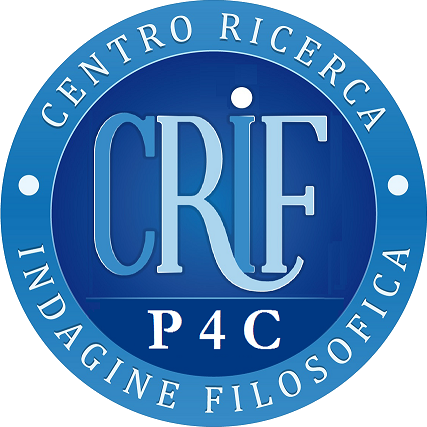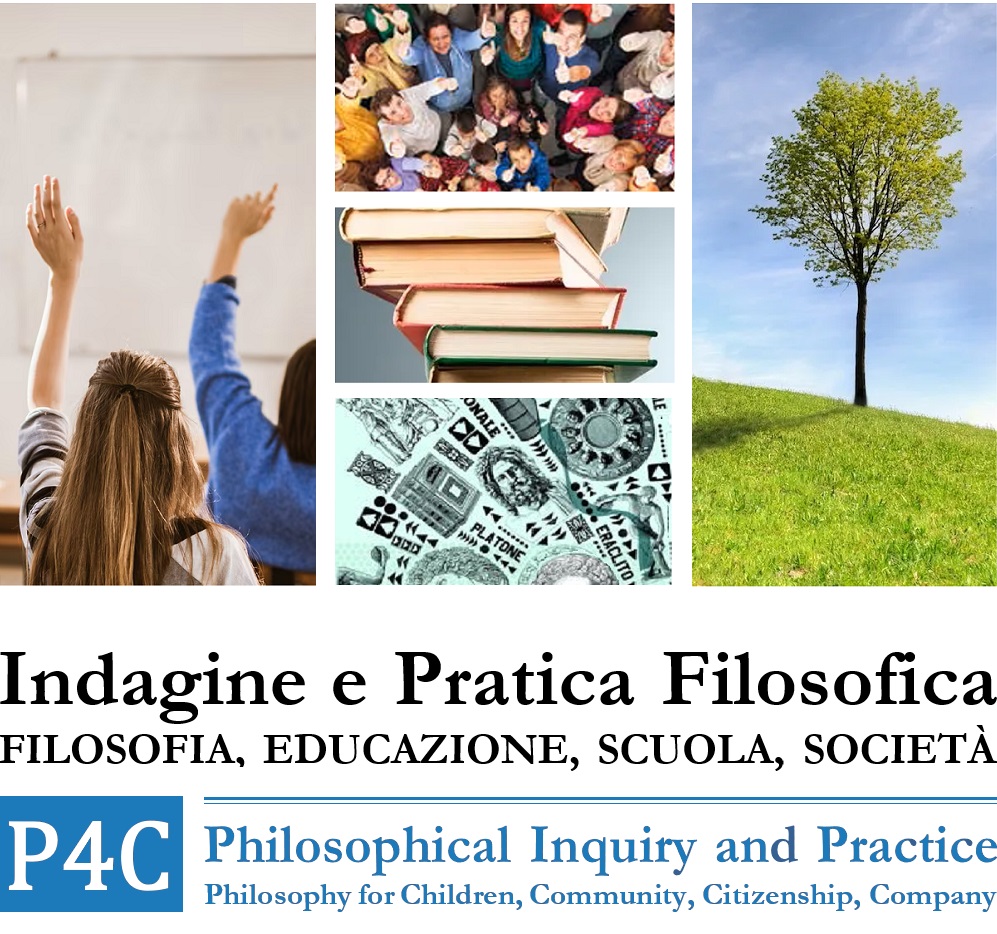Rivista Online Journal / ISSN 3035-0581
Call for Papers – Volume III, Number 1, June 2025
DEADLINES:
– Title and abstract submission: March 15, 2025
– Delivery of full article: May 31, 2025
Admitted languages: Italian, English (preferably)
Full author name(s) and institutional references in a separate page
This open-access journal aims to explore issues related to the community practice of philosophical inquiry, with a focus on the approach initiated by Matthew Lipman, Ann M. Sharp and others in the 1970s, regarded in the field as the ‘acquired view’, or at least as a modern classic, later developed in later years and now known as Philosophy for/with Children, P4wC, but used by all ages: children, young people and adults. However, not only that. Accepted contributions may transversally concern philosophy, education, and the humanities, promoting a dialogue between these and also other fields of knowledge, including the scientific and technological sphere. Essays of a theoretical nature, empirical research, teaching experiences, dialogues and interviews will find a place in the journal.
The publication is aimed at professionals from schooling, higher education, academia, lifelong learning, and any other educational, socio-cultural, and civic context, with the objective of promoting links between theory and practice in the use of philosophical inquiry as a tool for knowledge, civilisation, emancipation, democracy, and well-being.
The editorial board welcomes submissions from authors engaged in study and research as well as in teaching and practice. The topic of each issue may be general or specific, depending on the related call for papers, which may be miscellaneous or promote reflections on a well-defined subject.
The journal is divided into four sections, each with its own focus.
STUDIES
The section includes scientific articles of a conceptual-theoretical or empirical nature. In the latter case, essays may propose quantitative, qualitative, or mixed-method research, with the aim of both exploration and intervention and change. The aim is to increase knowledge of community practice in philosophical style at the epistemological, theoretical, and procedural levels.
Contributions must be written according to the editorial standards (available on the website, where you will also find a ready-to-use downloadable template), with a length between 30,000 and 40,000 characters, including spaces, footnotes, and bibliography.
EXPERIENCES
This section includes articles that, after a brief theoretical overview of the activity or professional intervention under discussion, analyse educational and socio-cultural experiences conducted with a dialogical-philosophical approach. The aim is to provide examples of how this practice can be employed in different contexts of our knowledge society.
Contributions must be written according to the editorial standards (available on the website, where you will also find a ready-to-use downloadable template), with a length between 15,000 and 25,000 characters, including spaces, footnotes, and bibliography.
TALKS
The section includes contributions in the form of dialogues and interviews with leading figures in the field of philosophical inquiry from around the world. The aim is to bring out the essentials of the practice through narration, involving the reader in the experience of scholars, facilitators, and trainers, in order to promote awareness in the profession.
Texts between 30,000 and 40,000 characters.
REVIEWS
The section promotes editorial information and welcomes reviews that analyse works concerning philosophical practice and/or that are of some interest in this field. The aim is to keep track of literature that is useful for furthering studies in the field, and to promote analysis and reflection from a transdisciplinary perspective.
Texts between 3,000 and 10,000 characters.
Paper submission
Contributions submitted for the STUDIES and EXPERIENCES sections are subject to double-blind and peer-review, respectively, after preliminary assessment by the editorial board. The processing time is between two and four weeks. At the end of this time frame, the authors receive an evaluation of their proposal and, in case of acceptance, return the final edited contribution according to the refereeing guidelines.
Editorial information and review proposals
The content of the TALKS and REVIEWS sections is managed by the editorial board, but in the case of reviews (and book-notices), suggestions of publications to be considered are welcome.
For further information and contacts
Editorial address
redazione-rivista@filosofare.org
Current Colophon nd Editorial Information


